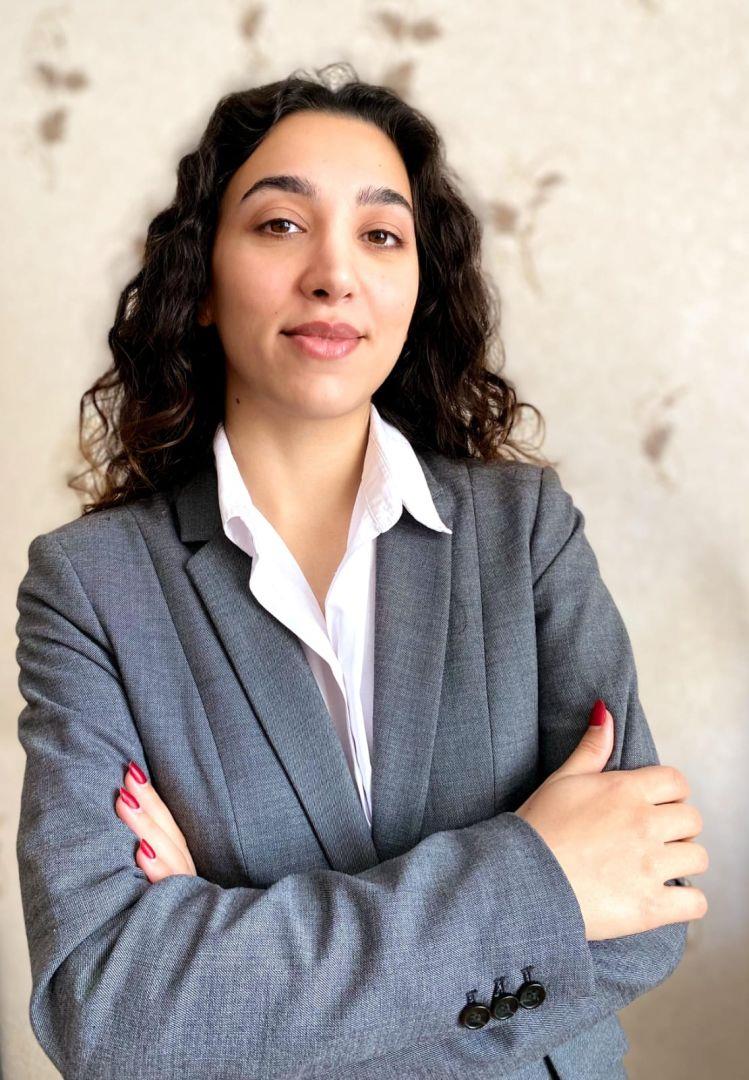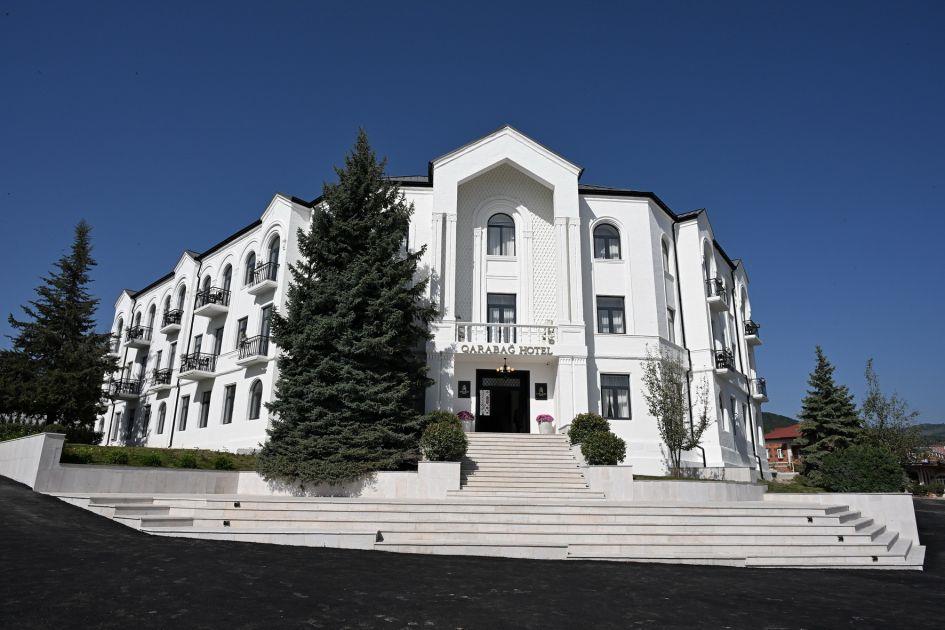
Azerbaijan Accelerates Tourism Revitalization In Liberated Territories Ahead Of COP29

Nazrin Abdul Read more
Azerbaijan is actively restoring and revitalizing its economy in the territories liberated from occupation, particularly in Garabagh, directing all state resources and capacities toward establishing local economies at the most modern standards. This effort is a pivotal focus area under the "Azerbaijan 2030: National Priorities for Socio-Economic Development" program, emphasizing the implementation of the Great Return initiative. The government is creating conducive conditions for returnees, concurrently clearing mines, developing modern infrastructure, and stimulating economic activities. These initiatives form the cornerstone of the government's economic policy objectives.
Before the occupation, Garabagh and its surrounding regions were distinguished by their significant potential in tourism and recreation. However, challenges related to security and the disruption of infrastructure resulting from the Armenian occupation hindered tourism development, underscoring the sector's importance as another key goal in the government's economic policy.
The reintegration of liberated territories into Azerbaijan's overall economy following the victory will significantly bolster the country's development by leveraging new international and regional transportation and logistics corridors. This framework aims to enhance regional stability, prosperity, mutually beneficial cooperation, and the development of economic and trade relations, further solidifying Azerbaijan's position as a leading state in the South Caucasus regional economy.
President Ilham Aliyev's opening of the "Garabagh" and "Palace" hotels in Khankendi and the "Isa Bulagi" leisure center in Shusha on July 5th underscores the government's commitment to this sector.
In his comment to Azernews on the issue, Goydeniz Kahramanov, Chairman of the Association of Azerbaijan Tourism Agencies, emphasized the critical importance of opening new hotels, launching airports, constructing logistics facilities, and developing railways and highways for the tourism sector.
"Reconstruction efforts are crucial as tourist numbers increase and interest in this region grows. Currently, two out of three airports in Garabagh are operational: Fuzuli and Zangilan airports, with plans underway to open the Lachin airport by year-end. This indicates our desire to welcome not only local citizens but also international tourists in the future."
Garabagh boasts rich tourism potential across various sectors including ecotourism, mountain tourism, winter tourism, hunting tourism, and health tourism, which will actively attract tourists. Highlighting the region's tourism prospects, Goydeniz Kahramanov underscored ongoing restoration efforts aimed at harnessing these opportunities.
"In general, the tourism prospects of the liberated territories are incredibly vast. Currently, reconstruction is ongoing in these areas. During the war, Armenian forces heavily mined these territories, and now cleanup and restoration efforts are underway. I have personally visited these regions several times; there are areas and cities where not a single building is safe. Nevertheless, restoration work is progressing rapidly, and we anticipate seeing tourists there in the future. Significant efforts are being made in this regard, and I believe we will soon welcome foreign tourists to this area."
Kahramanov also noted that Azerbaijani citizens now have increased travel options to Shusha and Lachin.
"Residents can travel to these regions by purchasing tour packages through tourism companies, which include overnight stays in hotels. Additionally, through the 'Our Way is to Garabagh!' portal, citizens can travel independently under the condition of returning by evening. I expect this number to gradually rise, and we must be prepared for it. Visitor satisfaction is crucial to us, necessitating meticulous preparation in this sector. New hotels, guesthouses, highways, railways, and airports should be fully equipped and aligned with our aspirations."
It's noteworthy that the establishment of new hotels ahead of the COP29 event scheduled for November this year is commendable. The tourism sector, including the hospitality industry, is fully gearing up for COP29.
During the ceremony where hotels awarded stars under the National Star Classification and the unveiling of the National Reservation Platform, Fuad Nagiyev, Chairman of the State Tourism Agency, emphasized the agency's special focus on sustainability in tourism.
"Since last year's end, we've been a proud destination partner of the World Travel and Tourism Council. This partnership also allows us to participate in the 'Sustainable Foundations for Hotels' program, covering 12 essential hotel operational areas."
This year, the State Tourism Agency officially joined the Global Sustainable Tourism Council, signing a memorandum aimed at supporting sustainable tourism development, aligning global sustainability standards with national practices, and implementing international criteria in Azerbaijan.
Nagiyev highlighted the importance of integrating sustainability into hotel operations, urging the industry to address contemporary challenges and draw from international best practices.
"Our primary objective is to elevate the hotel industry's role in hosting international events like COP29 at the highest standards."
"As part of COP29 preparations, hotels and other accommodations are listed on an official unified online reservation platform for the centralized lodging of future attendees. The tourism and hospitality sectors are fully prepared for the event," Nagiyev affirmed.
He expressed optimism that hotels striving for star ratings will soon achieve recognition alongside those already accredited.
"Regional star classifications will continue. I must emphasize that the hotel industry has shown exemplary social responsibility throughout the pandemic and the Patriotic War, steadfastly supporting national initiatives. We're confident they will spare no effort in upholding our country's reputation during COP29," Nagiyev concluded.
Additionally, Azerbaijan is committed to ensuring that Garabagh and surrounding areas fully benefit from tourism opportunities, including ensuring security, facilitating the return of residents, and creating infrastructure. This will restore Garabagh's historical grandeur while establishing modern infrastructure and unleashing the tourism potential.
Within a short period, the "Garabagh" and "Kharybulbul" hotels have already opened in Shusha. Additionally, restoration and repair work has begun on Yukhari Govhar Agha, Ashaghi Govhar Agha, and Saatli mosques in Shusha, as well as the Vaqif Poetry Days and "Kharybulbul" festival. The Heydar Aliyev Foundation's pivotal role in restoring cultural activities in the region is undeniable. The construction of three airports in Garabagh is also strategic.
All these efforts will facilitate more comfortable and convenient travel for tourists, including local and foreign, interested in visiting the cultural capital of Shusha, the pristine nature of Kalbajar, and the ecotourism opportunities and thermal resort of Istisu.
In conclusion, the development of tourism infrastructure in Azerbaijan's recently liberated territories, including Garabagh, has been a pivotal focus for the country's economic and cultural revitalization efforts. Following the successful military operations in 2020 that resulted in the liberation of these regions from Armenian occupation, Azerbaijan has embarked on extensive reconstruction and development initiatives.
These efforts aim to restore and modernize local economies, create sustainable livelihoods for returning residents, and capitalize on the rich tourism potential of the area. The upcoming COP29 event in November 2024 serves as a significant milestone, showcasing Azerbaijan's readiness to host international events and highlighting the strides made in the tourism sector.
Legal Disclaimer:
MENAFN provides the
information “as is” without warranty of any kind. We do not accept
any responsibility or liability for the accuracy, content, images,
videos, licenses, completeness, legality, or reliability of the information
contained in this article. If you have any complaints or copyright
issues related to this article, kindly contact the provider above.


















Comments
No comment